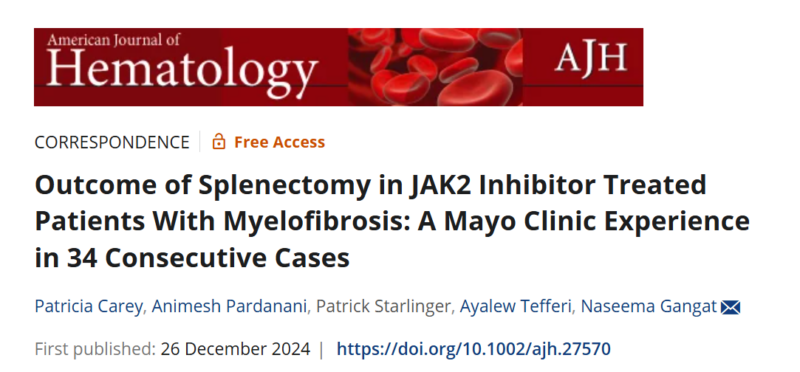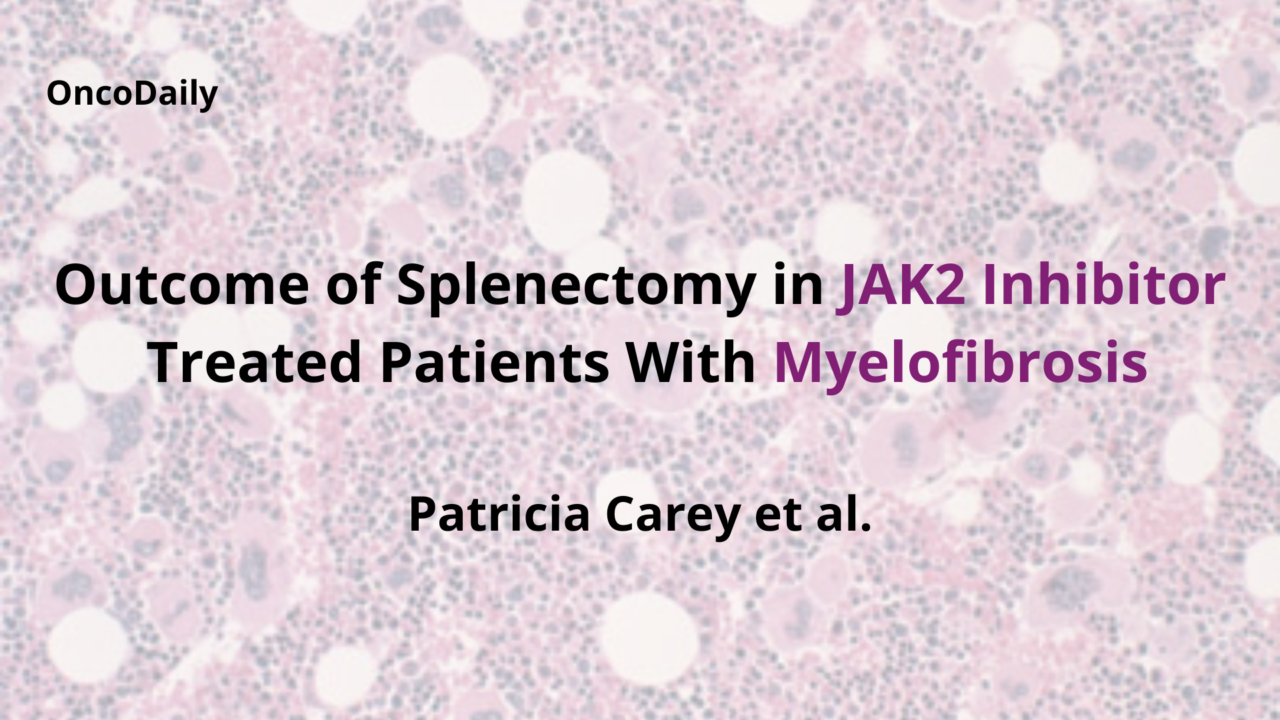Mostafa Faisal, Adjunct Assistant Professor at Alfaisal University, shared a post on X:
“Outcome of Splenectomy in JAK2 Inhibitor Treated Patients With Myelofibrosis: A Mayo Clinic Experience in 34 Consecutive Cases.
Splenectomy in JAK2i-treated Myelofibrosis (MF):
62% had complications; 29% major bleeding.
Median survival post-splenectomy: 4.3 years.
ASCT bridge: 86% success, 65% 5-year survival (vs. 22% non-ASCT).
Splenectomy: viable for palliation and pre-transplant!”
Authors: Patricia Carey et al.

This study evaluated outcomes of splenectomy in 34 myelofibrosis (MF) patients who previously received JAK inhibitor (JAKi) therapy. The cohort included patients with primary MF (53%), post-polycythemia vera MF (44%), and post-essential thrombocythemia MF (3%). Median age was 63 years, and the primary indications for splenectomy were symptomatic splenomegaly (79%), transfusion-dependent anemia (44%), and preparation for allogeneic stem cell transplant (41%).
Most patients had received one JAKi (76%), predominantly ruxolitinib, while 24% were treated with two or more JAKi. The median interval from MF diagnosis to splenectomy was 10.3 years.
Postoperative complications occurred in 62% of patients, including major bleeding (29%), thrombosis (26%), infections (15%), and other events like renal injury and pneumothorax. Overall survival post-splenectomy was 4.3 years, with 30-day and 60-day mortality rates of 6% and 15%, respectively. Causes of death included disease progression, infections, postoperative complications, graft-versus-host disease, and cardiac arrest.
This study highlights the potential role of splenectomy as a bridge to transplant or for symptom relief in MF patients with prior JAKi exposure but emphasizes significant risks of complications and mortality.


